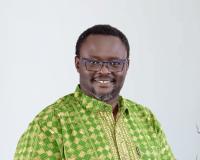Our civic space is shrinking. Here's how we've responded — and you can, too
Over the last several months, ActionAid Uganda has endured attacks by external forces aimed at halting operations and undermining work in communities across the country. What began as a siege on our offices last year on Sept. 20 followed with the freezing of our bank accounts on Oct. 6, and intermittent disruptions to ActionAid Uganda’s work in the field. ActionAid was not the only civil society organization impacted by this onslaught and is unlikely to be the last, but as a direct result of our responses we continue to overcome and support others to do the same.
ActionAid Uganda and three of its partner organizations were raided by Ugandan Police back by government warrants in September 2017. Raids saw office equipment and possessions confiscated. In our case, all items taken remain with the police. On 6th October ActionAid Uganda’s bank accounts were frozen on allegations of illicit financial transactions, money laundering, conspiracy to commit a felony and supporting subversive activities to destabilize Uganda.
These attacks have caused immense disruption to our operations. The confiscation of possessions, seemingly inconclusive investigations, freezing of accounts, and halting of activities in the field have cost us program implementation work and distracted us from our mission. We lost income, as potential donors reconsidered projects or processes previously agreed, citing concerns around the safety of grants following the siege. Intense state propaganda portrayed us as a criminal entity investigated for economic crimes. Sections of the media framed us as an antigovernment opposition party disguised as an NGO. It was shocking to hear highly placed officials referring to ActionAid as an organization with a track record of spying for foreign governments. Ongoing claims left our image and reputation damaged and saw sections of the population turn against us.
Despite these setbacks we have persevered to turn crisis into opportunity, defending our right to be and de-escalating the situation on five fronts.
1. Political
Openly engaging with relevant government offices, our bank, the Financial Intelligence Authority and Ugandan Police proved we have nothing to hide. ActionAid Uganda submitted all that was demanded of us and reached out to donor allies and individuals familiar with the Ugandan state who helped us access offices ordinarily out of reach. Collaborating with peers and communities, we mobilized signatures from over 17,000 people, petitioning the prime minister to unfreeze our accounts.
2. Financial
We found creative ways of keeping the office open, financing our basic program activities, staff salaries, and meeting most supplier obligations. Negotiating with tax authorities and maintaining strong relations afforded us a remittance waiver whilst our accounts were frozen, enabling us to avoid unfair fines and expectations. These actions, along with our clean track record, gave tax authorities confidence in the organization and meant we maintained financial probity at the height of the crisis.
3. Communications and public relations
We kept actively engaged with mainstream media and had a measured presence on social accounts. We responded to government propaganda when useful, and relied on a public statement by our National Governing Board to correct malicious accusations against ActionAid. Behind the scenes, we maintained communication with staff and key constituencies to prevent uncertainty and/or counter state propaganda.
4. Legal
A prominent legal team familiar with the political landscape prepared a strong case, directly challenging the actions of the Financial Intelligence Authority and Standard Chartered Bank. Through a combination of direct court action and legal discussions, a consensus was reached that contributed to the decision to unfreeze the bank accounts.
5. Learning
After four turbulent months we’ve emerged stronger with an increased understanding of how to operate in the current landscape. We’ve learnt to be more agile, reaching out to people we wouldn’t ordinarily have contacted, bypassing the usual diplomatic routes. We kept open dialogue with agencies whilst retaining our right to explore other options, such as protesting and litigation. But the most important tool we used following the siege was sidestepping typical NGO structures and instead using a scenario matrix to plan for all eventualities and remain adaptive.
The road ahead remains slippery, mainly due to the uncertain political future of the country and publicly inconclusive investigations by Ugandan police. But as these attacks continue to try and deter growing citizen resistance against an evolving autocracy in Uganda, ActionAid remains steadfast as an important player in strengthening social justice.
This article was originally published on Devex.com.


